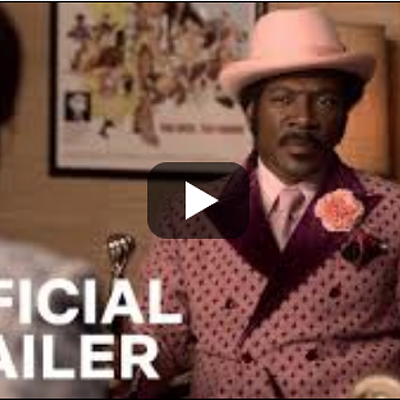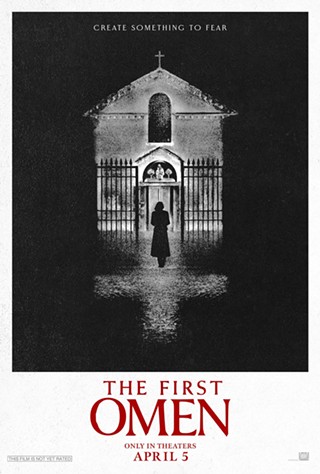The movie opens with an elderly man in the back of a cab. He explains that his teenage daughter has snuck off to see a soccer game, and he has to find her before the police do. Since Offside is set in Iran, where women are not allowed to go to men's sporting events, the situation is a little more dire than it would be in an American teen movie.
From there, the film follows the travails of a group of girls who, dressed as boys, snuck into a World Cup qualifying match between Iran and Bahrain. Six of them are captured by the military police and spend the bulk of the film in a small pen outside the stadium, listening to the roar of the crowd and pleading for just a glimpse of the game.
While that may not sound like the kind of high-octane action that motivates a motion picture, it's surprisingly effective, and only lags a bit in the latter half.
Panahi is the genius filmmaker behind The White Balloon and The Mirror, two of the best films of the '90s and two of the most intense movies ever made. While Offside doesn't match the heights of those early works, it's nonetheless compelling, and it gets a political message across without resorting to the kind of preaching that tends to summon the ghosts of Meg Ryan and Sally Field.
Instead, the politics and message unfold in the conversations between the captured girls and their reluctant captors, a group of soldiers who want nothing more than to be done with their tours of duty.
For example, the first girl captured (listed in the credits as First Girl) tries to use her cell phone to call her parents. But the soldier escorting her to the holding pen demands she hand it over. Instead of complying, though, they get in an argument about it, and he winds up borrowing her phone to call his girlfriend. When his girlfriend calls back, and First Girl answers, the soldier has to explain why it is that a woman answered the phone. It's weird and funny, and it alters his character from a faceless instrument of an oppressive state to a harassed and insecure boyfriend.
This sets an odd tone for the film: Instead of the soldiers being strong authority figures, they seem like ordinary people who just happen to be in uniform. They take a lot of backtalk from their captives. They make firm commands and then relent. They even get browbeaten into providing a running commentary on the game so the girls can at least know what's happening.
It's very strange and touching, and Panahi makes it clear that none of the characters are happy with their roles in this drama.
Some of the finest moments come when a very tomboyish girl (credited as "Smoking Girl" and played incomparably by Shayesteh Irani) starts arguing with the chief soldier. Not only does she not accept his orders to stop smoking; she clearly knows more about soccer than he does, and he ultimately throws his hands in the air and lets her do what she wants.
Limiting the action to a few sets helps to push the human aspect of the film, and Panahi emphasizes this with a lot of tight close-ups. He also uses two of his signature tricks: holding a frame after the actors have left, and holding the camera on one part of a scene when the action is happening elsewhere.
In this, he mimics Michelangelo Antonioni, and in his restricted cast and sparse scenarios, he's been compared to Ingmar Bergman. In many ways, he's the rightful heir to the New Wave tradition of those artists, and Offsides shows this off to good effect. But his politics seem far more engaged than that of the artsy '60s Euro-directors he emulates. No doubt this is due to the more pressing political conditions of modern Iran.
The Shah engaged in a vicious regime of torture and assassination. But in the eyes of the religious conservatives who succeeded him, his real sin was modernizing and Westernizing the country. When the fundamentalists gained power, a lot of women who had become doctors and athletes and who had gotten used to running around in comfortable clothing wound up paying the price of the transition.
Panahi is deeply sensitive to these flaws in Iranian politics. In order to deal with the Iranian censors, his early work avoided overt political reference. Deciding that he might as well make films that wouldn't be shown in his own country, his mid-period was more overtly political, but its bald rhetoric lacked the charm of his first two films. With Offside, he seems to be bridging the gap, and creating political art that's still art. It's not only human and subtle; it unfolds in real-time, one of the few films to successfully pull off that trick.
The end is both expected and surprising, with Panahi finding a way to add neat twists to what would otherwise be a standard finale. With this film, Panahi seems to be on newer, more sure footing, and if he can continue to combine the political with the personal, his work's worldwide importance will be assured.













